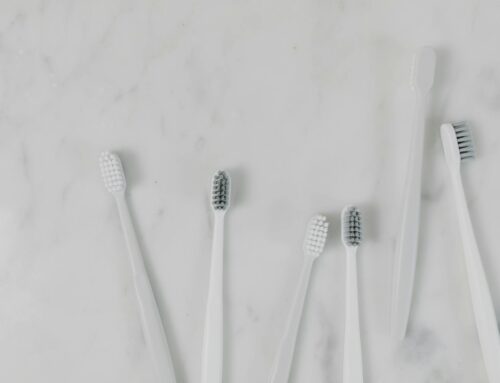The salivary glands are a crucial part of our mouths. They help us to eat, chew, and talk, whilst contributing to strong oral health. However, some people have salivary gland problems, which can cause significant discomfort. The announcement of a $2.2 million grant to a research team at the University at Buffalo will hopefully aid research into furthering knowledge into salivary gland problems.

A new $2.2 million grant awarded to a research team at the University at Buffalo will enhance and renew their ongoing research into salivary gland problems [1].
Salivary gland problems affect many people, and can be caused by a range of reasons. Due to how common these problems are, any research into the topic is welcomed.
This grant could result in many new avenues of research being looked into, with the aim of improving the treatment of salivary gland conditions.
What are the salivary glands?
The salivary glands are found in the mouth. Salivary glands are crucial to the proper and effective functioning of the mouth.
The main function of the salivary glands is to produce saliva. Saliva is vital for our oral health, and protects our mouth as we eat, chew and talk.
But when the salivary glands do not produce enough saliva, problems can arise. They may also become inflamed or painful – causing discomfort.
Reduced salivary flow is associated with an increase in the risk of tooth decay, cavities and tooth loss [2]. Therefore, the salivary glands are crucial.
What can cause salivary gland problems?
There are a huge range of potential causes of salivary gland problems. In some cases, there aren’t any obvious causes.
Radiation therapy is a common treatment for oral cancer. However, radiation therapy often leaves the salivary glands very damaged. Moreover, this can be to the extent where even talking is painful.
Sjogren’s Syndrome, which is an immune system disorder, affects the salivary glands too. This is a condition which often develops in later life [3].
Another common cause of salivary issues is medication. Some medicines, including commonly prescribed medications like antidepressants, are known to cause a dry mouth.
The Grant
In positive news, the University at Buffalo has announced a grant worth $2.2 million over a five-year period [1]. The grant comes from the National Institute of Dental and Craniofacial Research (NIDCR).
It is clearly a topic that Rose-Anne Romano – Associate Professor of Oral Biology at the University at Buffalo’s School of Dental Medicine – is passionate about.
Romano describes salivary gland issues as being akin to “shoving 10 crackers in your mouth and trying to speak” [1]. Moreover, she says “this is what life is like for patients with salivary gland dysfunction” [1].
Romano is hoping that this grant will contribute towards alleviating the suffering for patients with salivary gland issues. There are various ways that this grant will be able to assist.
The aim of the research
The overall aim is to further the understanding of scientists for how salivary glands develop, maintain and repair themselves following injury or disease [1].
To do this, the primary focus will be on p63, a protein which is known to regulate many cell activities. Moreover, a specific version called Delta Np63 will be focused on – with this sub-type playing a key role in the development and maintenance of the salivary glands [1].
The researchers have used mouse models in the past to show that without p63, many organs and tissues – including the salivary glands – do not form properly [1].
However, understanding the mechanisms involved in this process, including the development and maturation of tissue, is a key aim [1]. Moreover, this involves understanding stem or progenitor cells, which are needed for the gland to function properly.
The team are also seeking to identify other factors that may contribute to the behavior of p63 [1]. This phase of the research is likely to be within the next two years.
As mentioned earlier, the grant will be provided over a five-year period. By the end of the five years, the team hope to have carried out a comprehensive analysis to significantly increase the understanding of p63 and its influence on the salivary gland [1].
Summary
Overall, the hope is that in the future, the findings emanating from this research grant will contribute towards improved treatment outcomes for patients.
This is clearly a very vulnerable population, so any research to help them will be helpful. Improving quality of life is a priority for researchers.
Romano said that she was “ecstatic” with the awarding of the grant [1]. She said that the grant will allow researchers to “gain more information and move this research forward with the ultimate goal of helping patients regenerate damaged glands” [1].
Thinking points…
[1] Many people have various conditions that inadvertently cause oral health issues. For example, many people have dry mouth. Whether you have a medical condition or not, receiving a regular dental check-up is crucial! These check-ups provide a dentist with the chance to examine your oral health. We recommend booking an appointment now!
[2] We discussed in this article the importance of saliva to our oral health. It is important to stimulate the production of saliva. You can do this by sipping water throughout the day, sucking on ice cubes, chewing sugar-free gum or using mouthwash. Why not try to implement the above throughout the day? It could definitely contribute to improved oral health!
What we offer at Taradale Dental
Taradale Dental is a dental clinic based in Calgary, Alberta, Canada. At our Calgary dental clinic, we provide a range of services for our patients.
We advise our patients to attend our Calgary dental clinic at least twice per year for a regular dental check-up. At these check-ups, we provide a comprehensive review of a patient’s oral health. If any problems are detected, we have many treatments available. For example, these include cavity fillings and root canals. To strengthen your oral health, we recommend brushing your teeth at least twice a day and flossing regularly.
Here at Taradale Dental, we also have some cosmetic treatments available! These include dental implants, teeth whitening and Invisalign™! Our patients find that these treatments have a positive impact on their appearance, confidence and self-esteem.
Moreover, the fees of our treatments at our Calgary dental clinic Taradale Dental are set in line with the Alberta Dental Fee Guide. This ensures transparent and fair pricing, with no hidden costs.
We hope to see you soon at our Taradale Dental clinic in Calgary! You can find out more about us by visiting our website https://taradaledental.ca/!
References
[1] University at Buffalo. (2024). Oral biology, biochemistry professors receive $2.2 million grant to find ways to repair salivary glands. Available: https://www.oralhealthgroup.com/oral-health/oral-biology-biochemistry-professors-receive-2-2-million-grant-to-find-ways-to-repair-salivary-glands-1003981822/. Last accessed: 18th October 2024.
[2] Dos Santos Letieri, A., Siqueira, W. L., Solon-de-Mello, M., Masterson, D., Freitas-Fernandes, L. B., Valente, A. P., Ribeiro de Souza, I. P., Fidalgo, T. K., & Maia, L. C. (2022). A critical review on the association of hyposalivation and dental caries in children and adolescents. Archives of Oral Biology. 144 (105545). DOI: https://doi.org/10.1016/j.archoralbio.2022.105545.
[3] NHS. (2020). Sjogren’s Syndrome. Available: https://www.nhs.uk/conditions/sjogrens-syndrome/. Last accessed: 18th October 2024.


